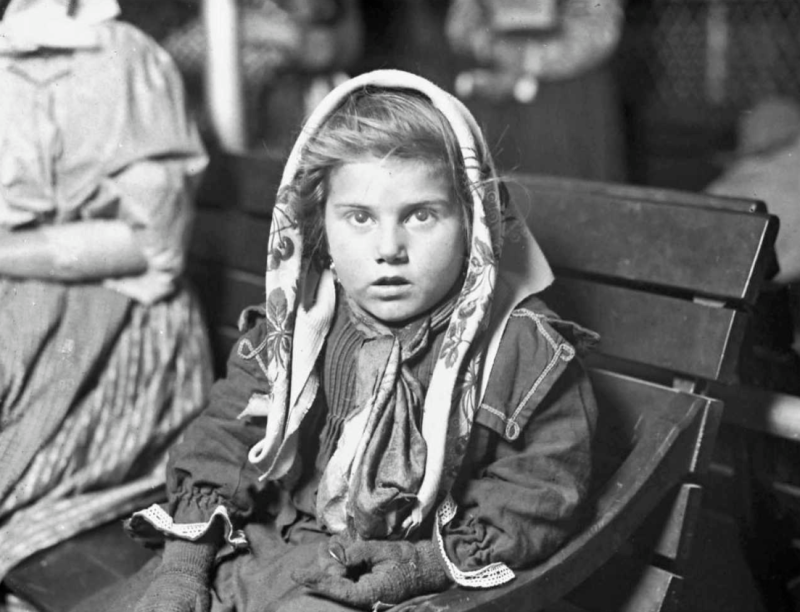Challenging the 1948 Rule in Italy
If you are applying for Italian Dual Citizenship through the "female" line, you may fall in the category of those born to an Italian female ancestor before 1948. For example: your mother's father was born in Italy; he did not become a naturalized U.S. citizen before her birth which makes you eligible, but because you were born before 1948, you do not qualify. If you fall in this category, there is a way to overcome this and successfully apply.
The 1912 Citizenship Law granting Italian citizenship jure sanguinis stated that women could hold but not pass citizenship to their children. However, in 1948 when Italy became a Republic a new Constitution did allow for women to pass on citizenship but only to children born after January 1, 1948. The Italian Supreme Court recently held that this provision is contrary to the Constitutional principles, particularly to the principle of equality between men and women (Judgement No. 4466/2009). Thus, also children who are born before 1948 to an Italian mother, may file a motion to appeal the "1948 Rule" and obtain, if eligible, Italian citizenship.
NOTE: even though the Italian Supreme Court ruled against the 1948 Rule, the Italian government has not yet chosen to modify or amend the current law. U.S. Italian Consulates and other Italian Consulates outside of Italy strictly adhere to the current 1948 Rule and will probably continue to do so until the law is amended. Thus, the legal action to be filed at the Italian Court that has jurisdiction over your Italian born Ancestor's hometown (*) is your only way to obtain citizenship.
(*) The Italian Parliament has recently passed a bill that will change the jurisdiction where “1948 cases” and other citizenship-related lawsuits will be heard. In this new bill there is a clause establishing that the court having jurisdiction on cases dealing with citizenship issues is now based on the place of birth of the Italian ancestor of the applicant/plaintiff:
36. All'articolo 4, comma 5, del decreto-legge 17 febbraio 2017, n. 13, convertito, con modificazioni, dalla legge 13 aprile 2017, n. 46, e' aggiunto, in fine, il seguente periodo: «Quando l'attore risiede all'estero le controversie di accertamento dello stato di cittadinanza italiana sono assegnate avendo riguardo al comune di nascita del padre, della madre o dell'avo cittadini italiani».
This means that starting June 22, 2022, new cases will no longer be heard in Rome but rather in local courts, unless of course the Italian Ancestor’s place of birth falls under the jurisdiction of the courts in Rome. These local courts coinciding with a Court of Appeals are 26 in total: Ancona, Bari, Bologna, Brescia, Cagliari, Caltanissetta, Campobasso, Catania, Catanzaro, Firenze, Genova, L'Aquila, Lecce, Messina, Milano, Napoli, Palermo, Perugia, Potenza, Reggio Calabria, Roma, Salerno, Torino, Trento, and Trieste.
In essence, this bill aims at reducing the heavy workload of this specialized section established in the Court of Rome and shortening the timeline of legal proceedings at the same time.
NOTE: The actions already filed in the Court of Rome will continue as they are. Whether there will be changes in the timeline of these ongoing cases is too early to tell.
Consequently, when your application/portfolio is ready to go to Italy, if after June 22, 2022, you will be filing in the appropriate court of your ancestor’s birth as stated above.

This is how it works (up to June 21, 2022):
The lawsuit must be filed before the Civil Court of Rome and against the Italian Ministry of Interior, although the Italian government is not defending the law in Court anymore. Please note: the list below is a general overview of the process. Timings vary and mainly depend on the judge’s workload.
The judicial procedure consists of the following steps:
- File the claim in Court;
- The Court appoints a judge, who will oversee the case (average time to get a judge appointed is 2 to 6 months);
- The appointed judge, based on his/her agenda, schedules the first hearing date usually held 6-8 months from the submission of the claim. However, in our experience the first hearing date is held after 10 months, sometimes even 12 months, from the submission of the claim
- During the first hearing date different scenarios may occur. Specifically:
- the judge requires additional documents and/or correction/amendments of records and then schedules a second hearing,
- if the judge challenges the claim, he/she will give time to the parties to write a final defense of the claim;
- the judge deems that no further docs/clarifications are required, and will keep the entire file, in order to issue the judgement.
5. The final judgement (if positive, he/she declares the applicant an Italian citizen) is issued between 4 months and 10 months after the last hearing (average timing).
The timeline from the moment the claim is filed in Court and the Final Judgement is issued may be between 12 and 24 months. NOTE: This timeline does not include the time it takes for the applicant to put the entire document portfolio together, which is about 6 to 12 months. Therefore the entire process (from the moment the applicant starts gathering documents to the final judgement from the Court House in Rome) is between 18 to 36 months.
Even though a positive outcome is not guaranteed, the success rate is high, provided the normal qualification requirements are met.

Although the Legal Process Can be Lengthy and Expensive, There are Advantages
Applicants are not required to travel to Italy if they have a law firm representing them in front of the Civil Court of Rome.
If more than one family member is applying, there is the possibility to include them (assuming they are all sharing the same Italian lineage) in the same petition for a small additional cost. Minors are included at no extra charge.
Italian Citizenship will be granted in Italy and vital records will be recorded with the applicant’s Ancestral town in Italy. For this reason, Italian Consulates are not involved in this process, except when the applicant will present his or her Italian birth record to register with the AIRE office of the Italian Consulate that has jurisdiction over the state where the applicant permanently resides.
At My Italian Family, we don’t just give advice, we handle all the purchasing and preparation of your entire portfolio of documents, whether you apply at an Italian Consulate here in the U.S. or you apply in Italy (including 1948 Challenge Courts Cases). Our experience spans the past 20 years, and we have expert knowledge of what each Consulate requires, as well as what the Italian Courts require.TO GET STARTED AND FOR MORE INFORMATION, CLICK HERE.
Questions? You can book your FREE Telephone Consultation at your convenience
© 2019 (updated in 2022) MY ITALIAN FAMILY, LLC. All rights reserved
